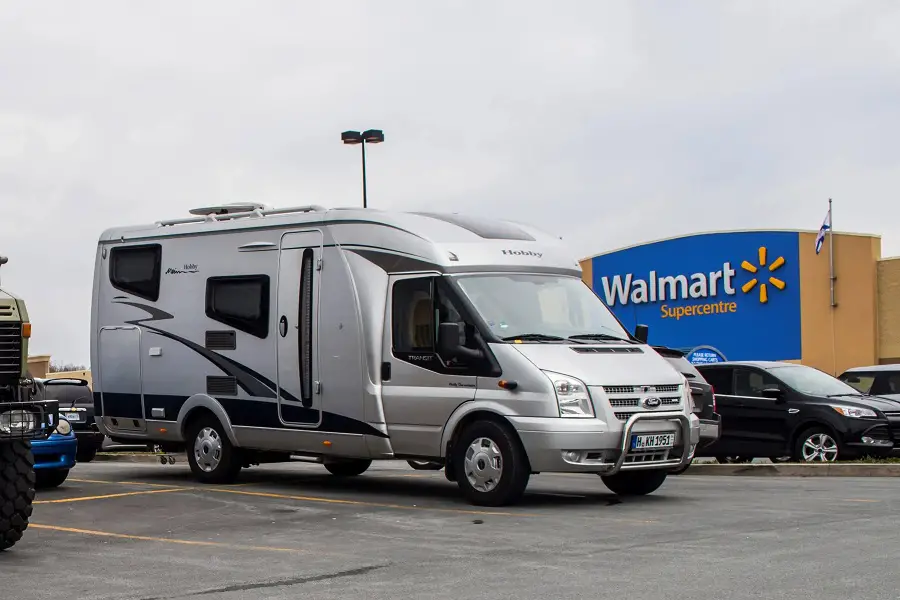Do you love camping, but want to try something new? Dry camping might be just the thing for you.
Unlike traditional camping where you have access to electricity, running water, and other amenities, this camping type is without any hookups.
It’s a great way to get off the beaten path and experience nature in a whole new way.
So grab your tent and let’s get started on this adventure!
What is Dry Camping?
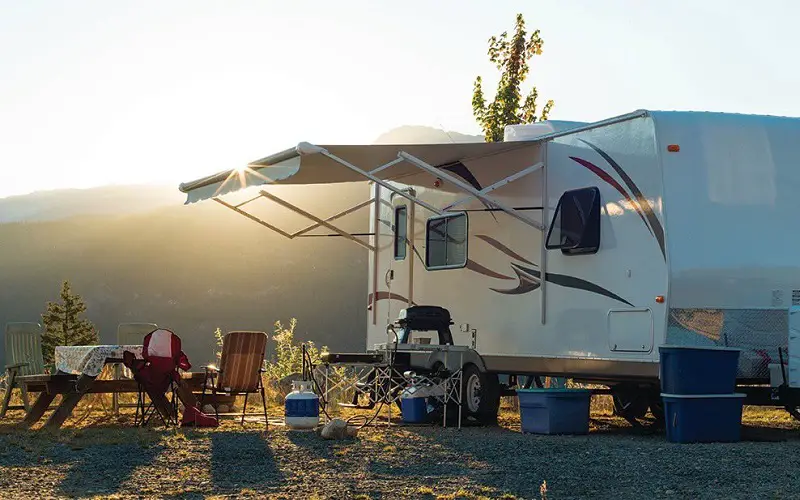
It is a form of camping that involves no hookups or facilities, also known as boondocking or primitive camping.
It requires self-sufficiency in terms of water, power, and waste management. This camping style offers an authentic nature experience and saves money on campsite fees.
Is Dry Camping Safe?
It can be safe if you take the necessary precautions. Prior research of the camping spot is crucial to identify potential dangers.
Bring enough supplies and follow Leave No Trace principles. Being respectful towards wildlife helps minimize risks.
Advantages and Disadvantages of Dry Camping
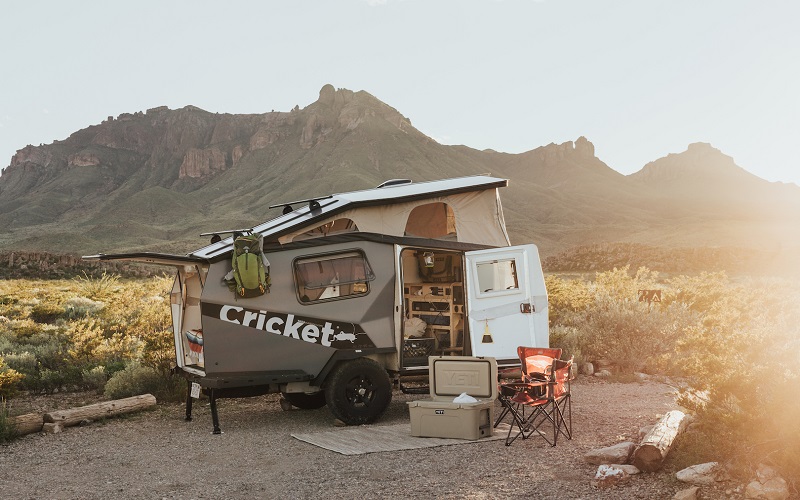
Dry camping can offer numerous benefits for those willing to embrace its challenges. You can save money on campsites by exploring free or low-cost options.
Dry camping in locations like national parks or state parks can help you connect with nature while avoiding crowded campgrounds.
While it requires self-sufficiency when it comes to resources like fresh water and electricity, using solar panels or a generator can help you stay comfortable.
Just remember to practice good water conservation habits and properly dispose of your waste at dump stations when available.
Advantages
Dry camping is an excellent way for campers to get away from it all and enjoy a more private and secluded camping experience without breaking the bank.
With no hookups or amenities available at campsites or RV parks, dry camping requires you to be self-contained by managing your own resources like water and energy.
This encourages conservation and self-sufficiency while also allowing you to disconnect from technology and immerse yourself in nature’s beauty.
Disadvantages
Proper preparation is essential when it comes to dry camping. One disadvantage is that it requires more planning than traditional camping with hookups.
Resources like water and electricity need to be conserved during dry camping trips which can limit the length of your stay. Furthermore, the lack of amenities such as showers and flush toilets may cause issues for some campers.
Extreme weather conditions like high heat or cold temperatures can make dry camping challenging.
Dry Camping Tips for First-Timers

If you’re a newbie RVer looking for an off-grid camping experience, dry camping might be just what you need.
Before hitting the road, get familiar with the ins and outs of dry camping.
Conserve Water
Conserving freshwater is critical when dry camping without hookups for clean water sources.
Adequate storage containers and a filtration system are helpful to ensure potable water consumption. It’s best practice to take brief showers and limit running taps while brushing teeth or washing dishes.
The use of eco-friendly soaps helps minimize environmental impact during cleanup efforts. Proper disposal of wastewater avoids contamination and pollution of surrounding areas.
Use Solar Power
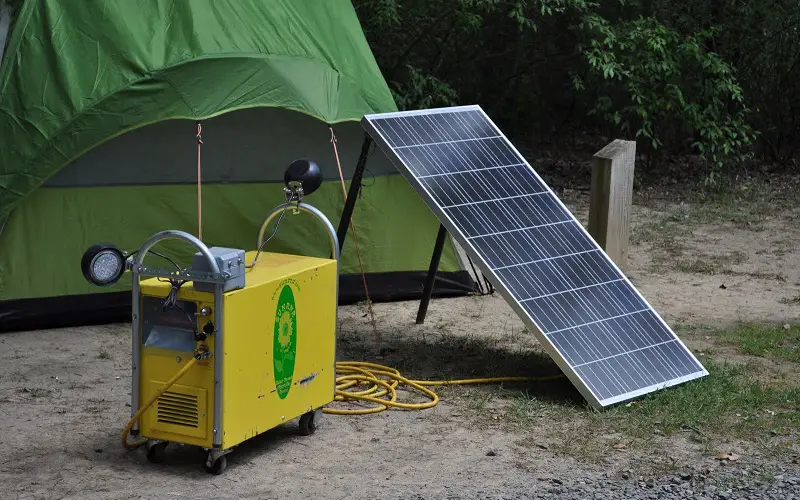
Using solar power is a great idea when going dry camping. It allows you to generate your own electricity without relying on a generator or external power source.
Invest in a good solar panel and battery system that’s suitable for your energy needs and the amount of sunlight available in your location. Be mindful of the appliances you use so that you don’t drain your battery too quickly.
Also, choose biodegradable soap products that are eco-friendly. Properly disposing of wastewater is crucial for avoiding contamination of surrounding areas.
Fill up Your Propane Tank
To ensure an enjoyable and hassle-free dry camping experience, always remember to fill up your propane tank before embarking on your trip.
This is because propane is crucial for cooking meals and keeping warm during chilly nights while off-grid. Conserve fuel by turning off appliances when not in use and planning how much propane you’ll need for your stay.
Beforehand research can uncover whether filling up your tank at a gas station or packing additional tanks is the best option for you. Don’t forget to switch off the rig’s propane appliances whenever they are not required.
Check if a Reservation is Required
Before embarking on a dry camping adventure, make sure to do your research and check if reservations are required for the campsite you wish to visit.
It’s always a good idea to have multiple options in mind and consider having a backup plan if your preferred location is full. Doing so will save you time and help ensure that you avoid the frustration of driving around looking for a suitable camping spot.
Remember to book early if reservations are required and arrive early during the non-peak season if they’re not. By taking these steps, you can significantly improve your RV camping experience.
Finding the Right Dry Camping Location
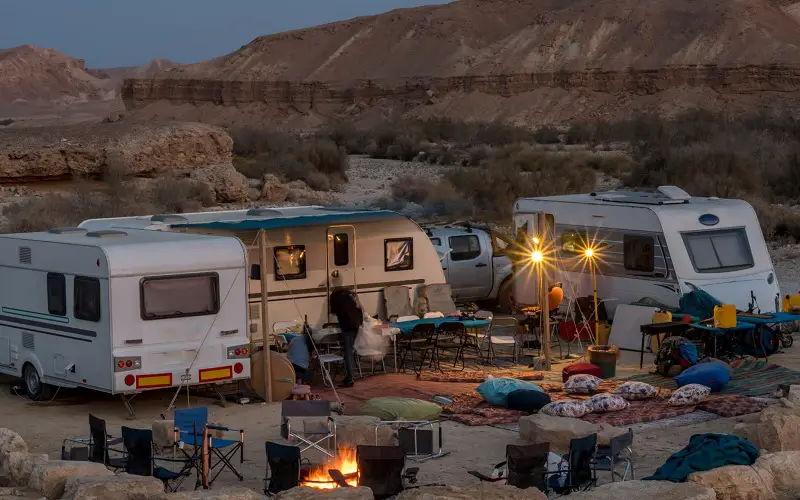
When searching for a suitable place to go camping or off-grid camping with your RV or camper trailer there are some important factors to keep in mind.
It is essential to do some research beforehand to ensure that dry camping is allowed in the location you have in mind.
You should look for areas that offer convenient access to water sources and public land where you can park like a Walmart parking lot.
It’s good to consider how accessible it is and whether you’ll need a generator for power supply- using solar panels is always an eco-friendly option.
Lastly, make sure you check all regulations and potential hazards by consulting apps like Campendium before choosing your ideal spot.
Boondocking Vs Dry Camping
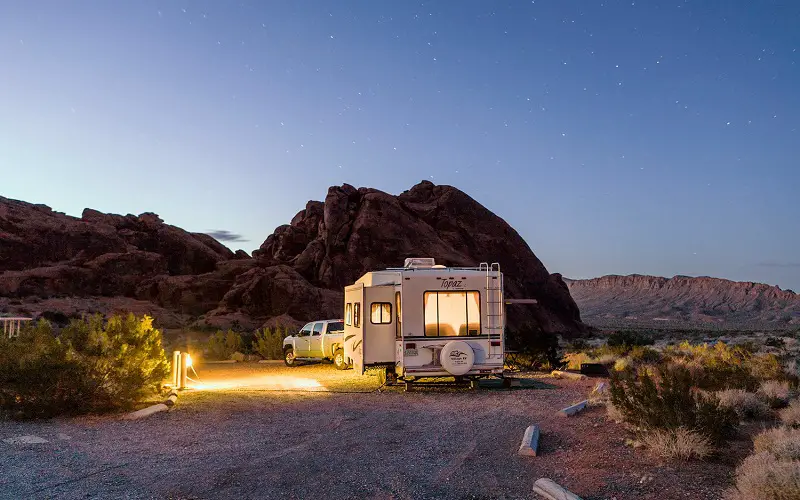
Camping enthusiasts have two options for exploring the beauty of the United States without hookups.
Boondocking refers to camping in remote areas devoid of amenities like freshwater tanks or sewer hookups.
In contrast, dry camping is done within designated grounds like a state park campground.
The significant difference between these two is that boondocking requires you to bring equipment like solar panels or generators for your RV as opposed to dry camping which only requires basic gear as well as good planning and preparation.
Is Dry Camping Worth It?
Dry camping can be a fulfilling experience for nature lovers who want to disconnect from technology and save on campground fees.
However, it requires more preparation and self-sufficiency than traditional camping. Whether it’s worth it depends on individual preferences and comfort level with roughing it in the wilderness.
While not for everyone, can be a great experience for those who seek adventure and want to connect with nature.
You’ll have to make adjustments to your lifestyle, but the benefits can be rewarding. With proper preparation and common sense, it can be safe and enjoyable.
The advantages range from cost savings to being closer to nature, but there are some downsides too.
Planning is key when it comes to finding the right dry camping location and knowing what you need to bring along.
References:


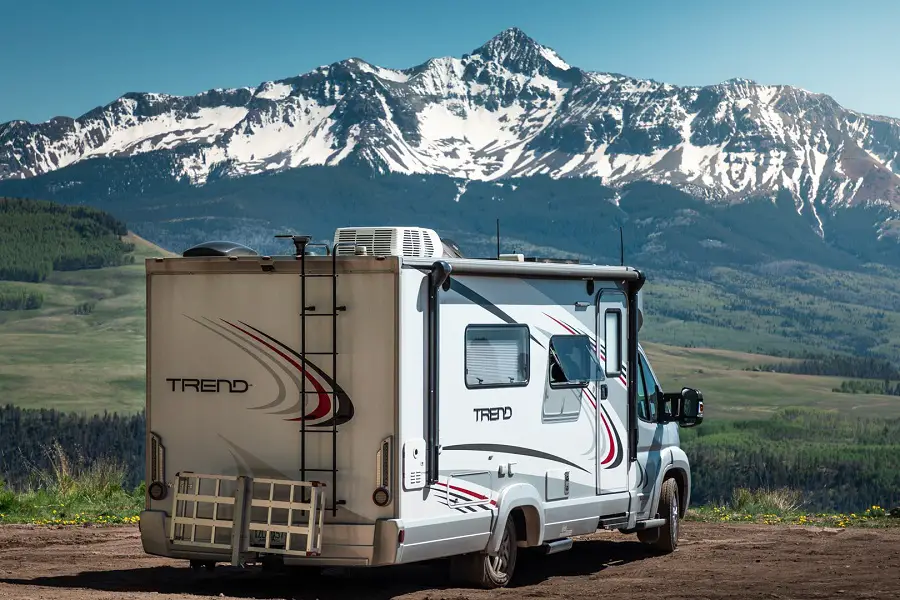

![9 Final Thoughts And Items For Your First Camper Adventure [Checklist] 10 RV Camping Checklist](https://kempoo.com/wp-content/uploads/2018/11/first-camper-adventure.jpg)
